Are Eggs Good For Dogs Or Cats? Pros, Cons and Tips
When it comes to this topic, the first question you may have wondered about is… Can dogs eat eggs? The short answer is, yes they can, as can cats. However, there are benefits and risks to be aware of. The question then becomes, “are eggs good for dogs? What about cats?”. Basically, should your pet eat eggs? Let’s look at what to keep in mind.
Truth be told, eggs are one of the most complete and nutritious foods you can give your pet. Their biological value, meaning, the fraction of amino acids (protein) absorbed by the gut that is retained by the body for growth and/or maintenance, is huge: 100%! That is powerful!
The benefits that come from including eggs in dogs and cats’ diet do not end here. They are also a good source of Vitamin A, Riboflavin, Folate, Vitamin B12, Iron, Selenium and Fatty Acids. These are all needed to ensure homeostasis – the body’s ability to keep its internal environment balanced.
Feeding eggs to our four-legged best friends might raise some doubts and concerns. Should they be offered cooked or raw? Is it best to give the whole egg, or only the yolks? Getting answers to these and many other questions will allow you to make a conscious decision on if and how your buddy is going to benefit from the egg’s superpowers.
Every pet is unique and has their own needs. At the end of the day, what matters most is ensuring that their diet is high-quality, balanced and nutritious, and that the feeding plan adopted fits your lifestyle. Your vet can help you figure out what is in your pet’s best interest!
Maven Pet
Health Monitor
#1 Vet-recommended pet monitor! Tracks activity, rest, respiratory rate, water intake, scratching and other health indicators 24/7
- Dogs and cats can eat eggs, offering numerous benefits but also some risks.
- Eggs provide essential nutrients like Vitamin A, Riboflavin, and Biotin, contributing to overall health.
- Raw egg whites may cause digestion issues; cooking neutralizes harmful enzymes.
- Raw eggs may carry salmonella; proper storage and cooking reduce risks significantly.
- Consult your vet to determine the right amount and method of including eggs in your pet's diet.
Raw egg whites contain enzyme inhibitors

It’s a fact! Whites contain enzyme inhibitors that can have a negative impact on digestion, especially in very young and old animals. However, this only becomes harmful for their health if eggs are given on a daily basis – 1 per meal.
Raw egg whites can cause Biotin deficiency
Egg whites contain avidin, a Biotin inhibitor. Biotin, also known as Vitamin B7, plays an important role in cellular growth, fatty acid metabolism and is good for skin and coat. Deficiencies of this nutrient are quite rare and it would take an extraordinary amount of eggs to make biotin decrease dangerously.
On the plus side, and this is how we know Nature has its own way of keeping everything balanced, egg yolks are very high in biotin! As long as you feed the entire egg, avidin will not be a concern.
What we suggest is that the egg is fed as a whole, so we can avoid this issue.
Cooking the egg will also solve the problem of avidin. Heat has the ability to neutralize the enzyme, so it can no longer bind and inhibit Biotin, allowing the vitamin to be used by the body.
Raw eggs may contain salmonella

True story! The chances of an egg being contaminated with salmonella are less when we are talking about a store-bought pasteurized egg, properly stored and eaten within the expiration date. However, contamination is still possible… And we should be aware of it when considering eating or feeding our pets raw or cooked eggs.
Dogs have the great advantage of dealing with bacteria a lot better than humans. In fact, they are known to be much more resistant to bacteria intoxication than most animals.
That being said, we should never disregard any preventive safety measures. Ensuring a proper storage and that the eggs are kept cool will maintain the harmful bacteria at a manageable level.
Following the expiration date, making sure that the eggs are stored appropriately and cooking them all the way through, will highly decrease the chances of getting food poisoning or any gastrointestinal issue.
Raw eggs are more nutritious than cooked eggs

This is also true! The cooking process has an impact on any food’s nutritional value, and eggs are no different. On the other hand, cooked eggs are way safer regarding the bacteria content and are also better for digestion!
How to include eggs in your pet’s diet
If you were wondering “are eggs good for dogs or cats?” or “should my pet eat eggs?”, all the cards are now on the table. We hope that with all the information above, you have the means to make a conscious decision about if and how to include eggs in your buddy’s diet.
Here is what you need to know in terms of feeding amount:
If the pet is on a BARF diet:

- Cats and dogs weighing less than 22lbs (10kg), may have 1 to 2 raw/cooked eggs a week.
- Dogs weighing more than 22lbs (10kg), may have 2 to 3 raw/cooked eggs a week.
- To maintain the same caloric intake, substitute 50g of meat for one whole chicken egg.
If the pet eats dry food:
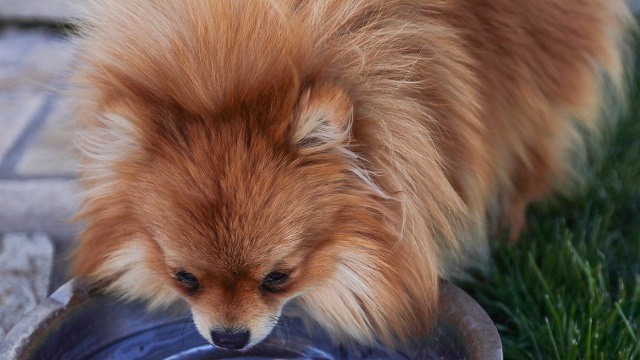
- Cats and dogs weighing less than 22lbs (10kg), may have 1 to 2 raw/cooked eggs a week.
- Dogs weighing more than 22lbs (10kg), may have 2 to 3 cooked eggs a week.
- Roughly speaking, one whole chicken egg equals 0,5oz (15gr) of dry food, and the substitution should be done as such.
- Start with half an egg a week, and keep increasing the amount gradually.
As a matter of curiosity, egg membranes are highly nutritious too! In fact, studies show that they can actually have more glucosamine than some joint supplements on the market.
Keep in mind that neither raw or cooked food should be left in the pet’s bowl for more than 5 to 10 minutes, even if mixed with dry food. If they do not eat their meal right away, that batch should be tossed and the bowl thoroughly cleaned.
Are eggs good for dogs or cats? – Conclusion
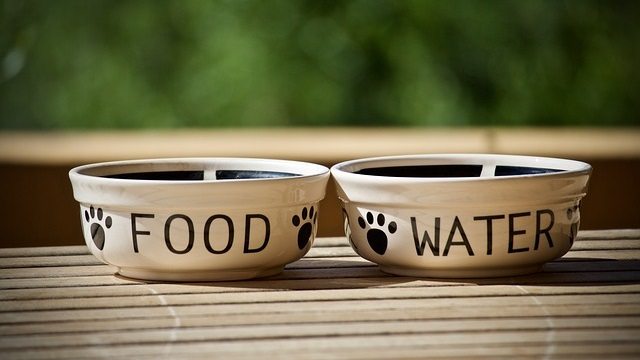
So, are eggs good for dogs or cats? Well, rather than “should my pet eat eggs?”, the question should be more along the lines of, will my pet benefit from consuming eggs? We hope this article has helped you on that, but if you’re still on the fence, ask your vet!
Maven is all about proactive pet care. Be your best friend’s best friend by giving them 24/7, high-quality, industry-leading vet care to improve their mental health, physical health and more. No more frantic googling or unneeded stressful visits to the vet – Maven helps you save hundreds while also ensuring your pet lives the best life possible. Get your kit now!

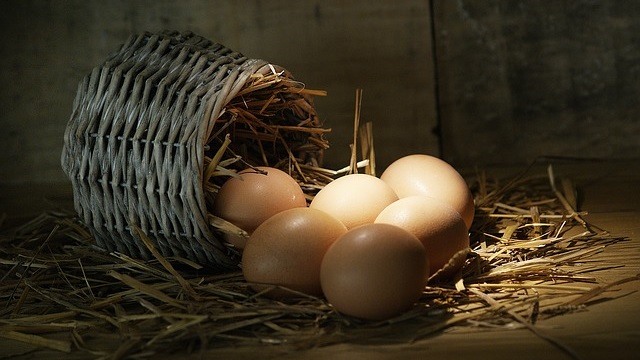


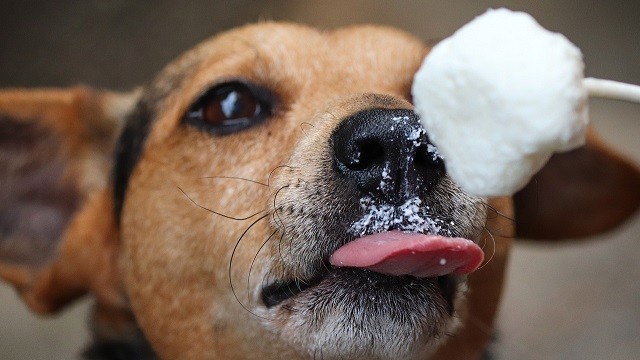
Great, thx